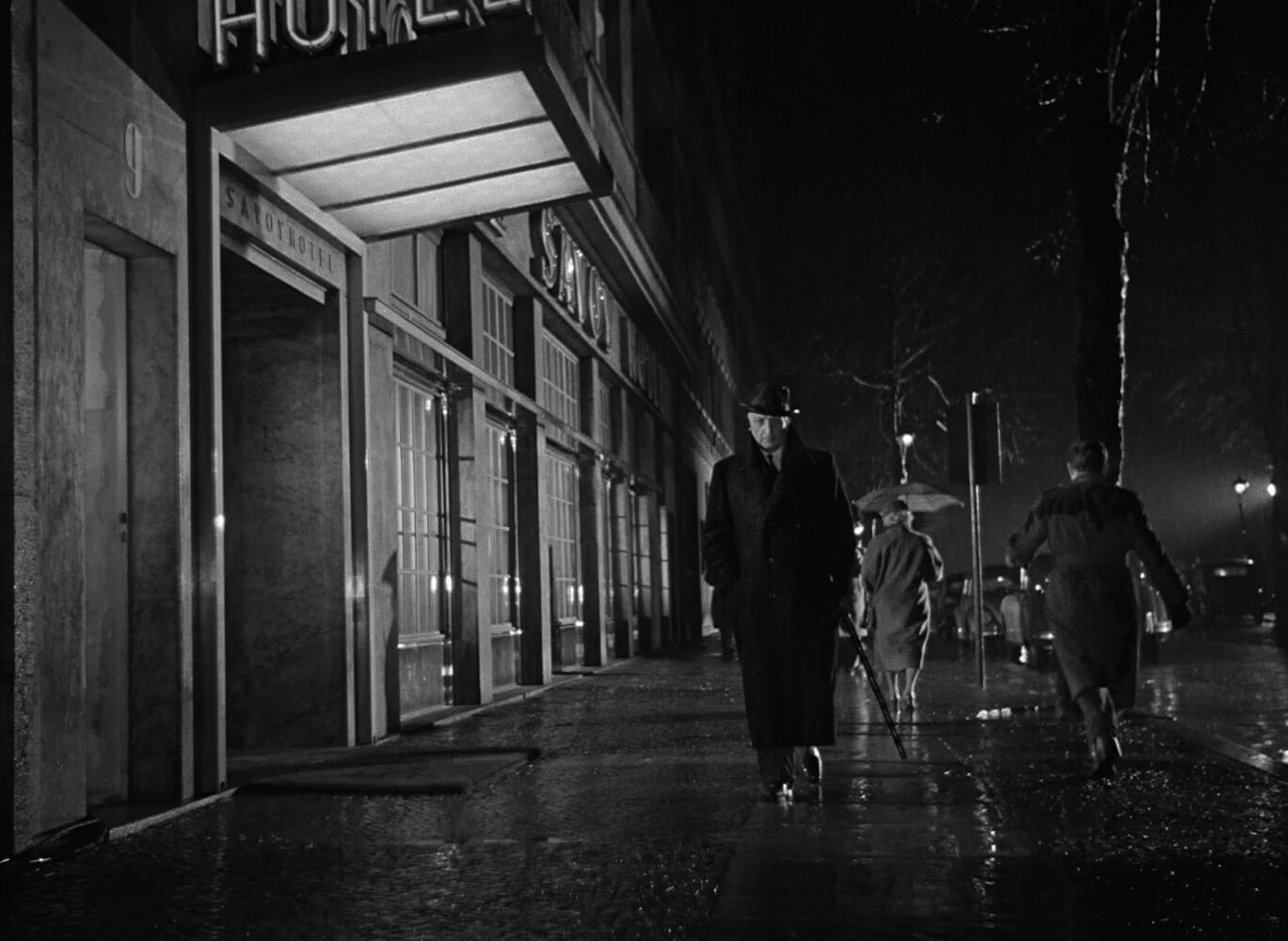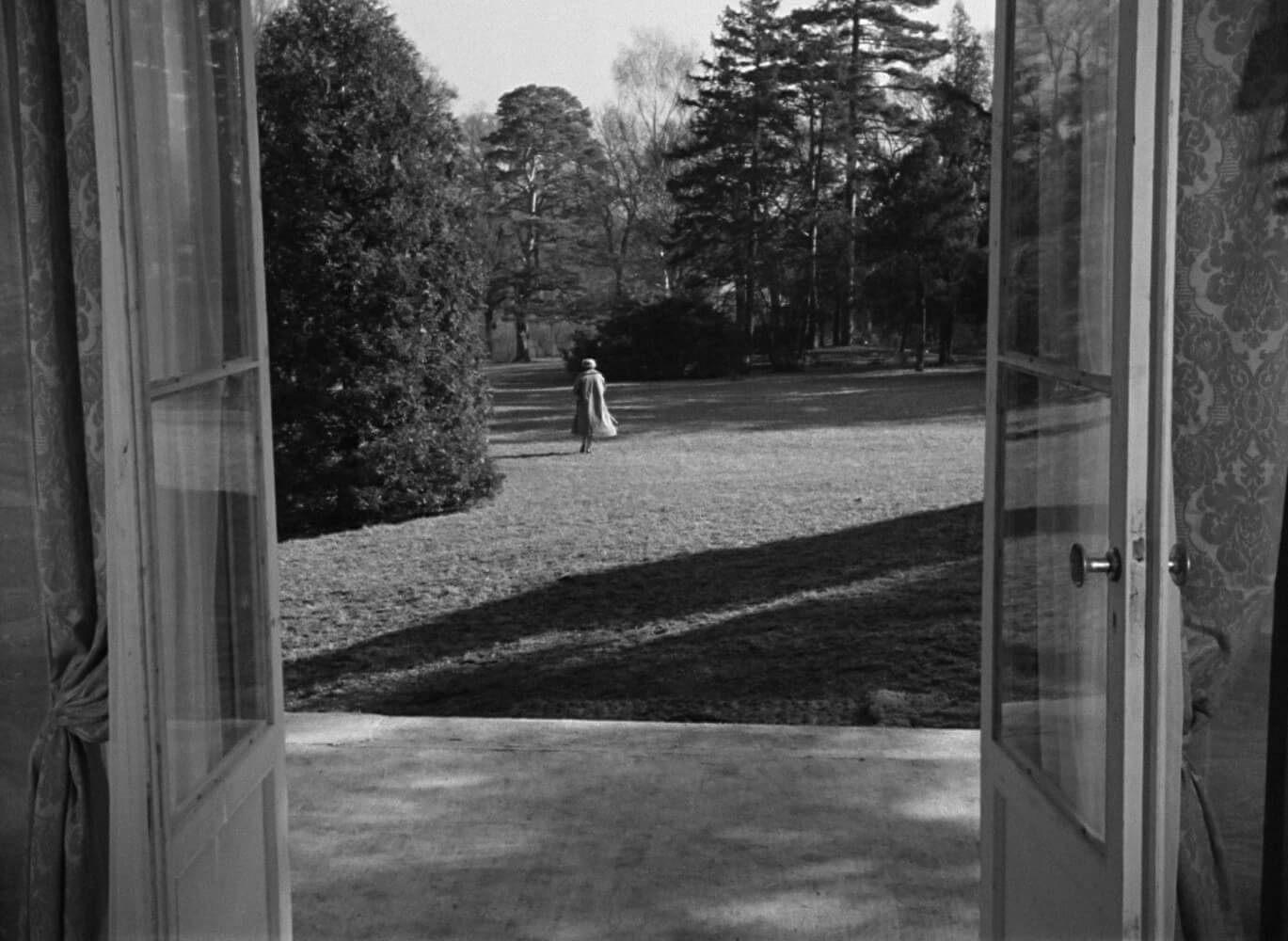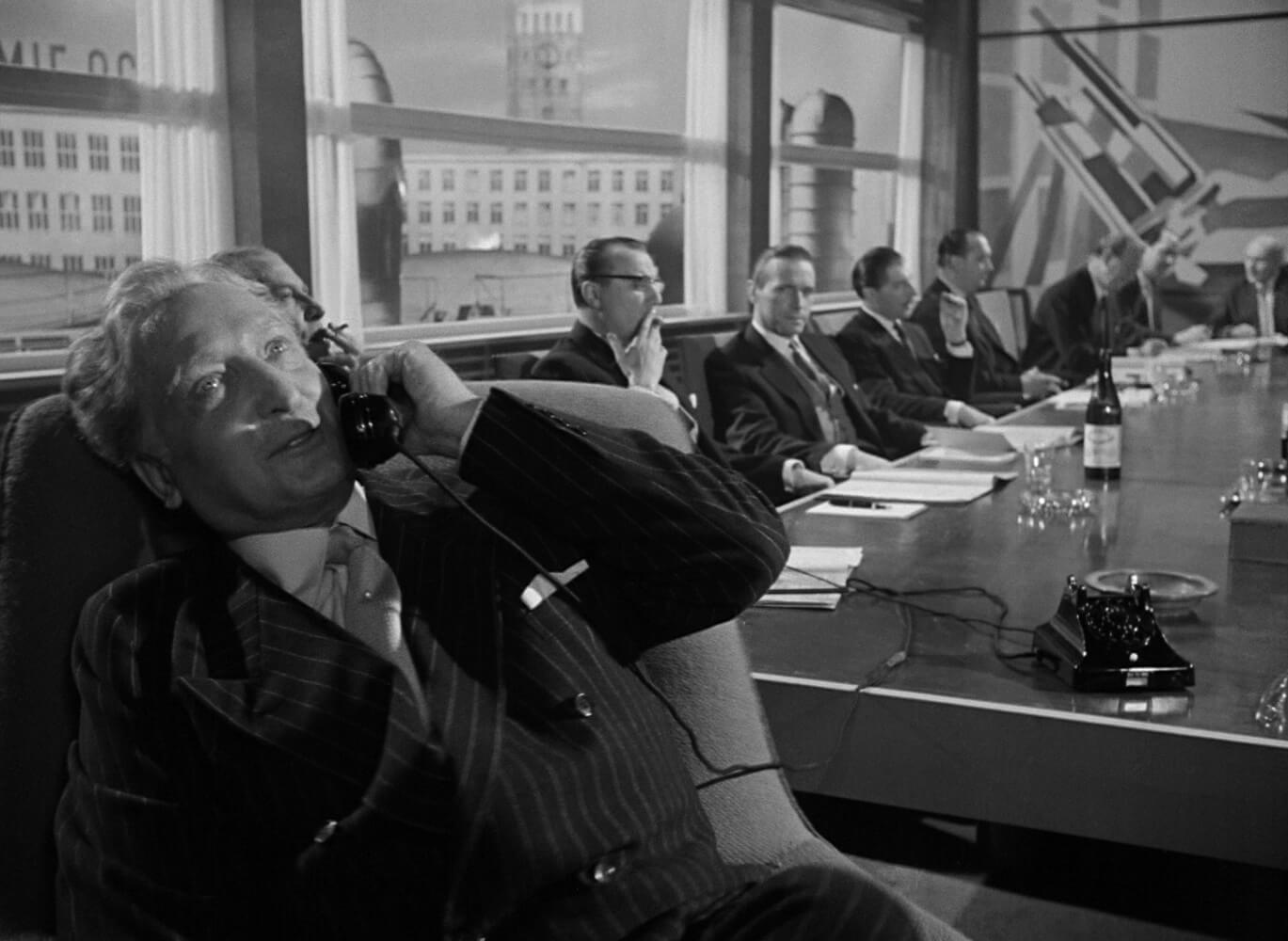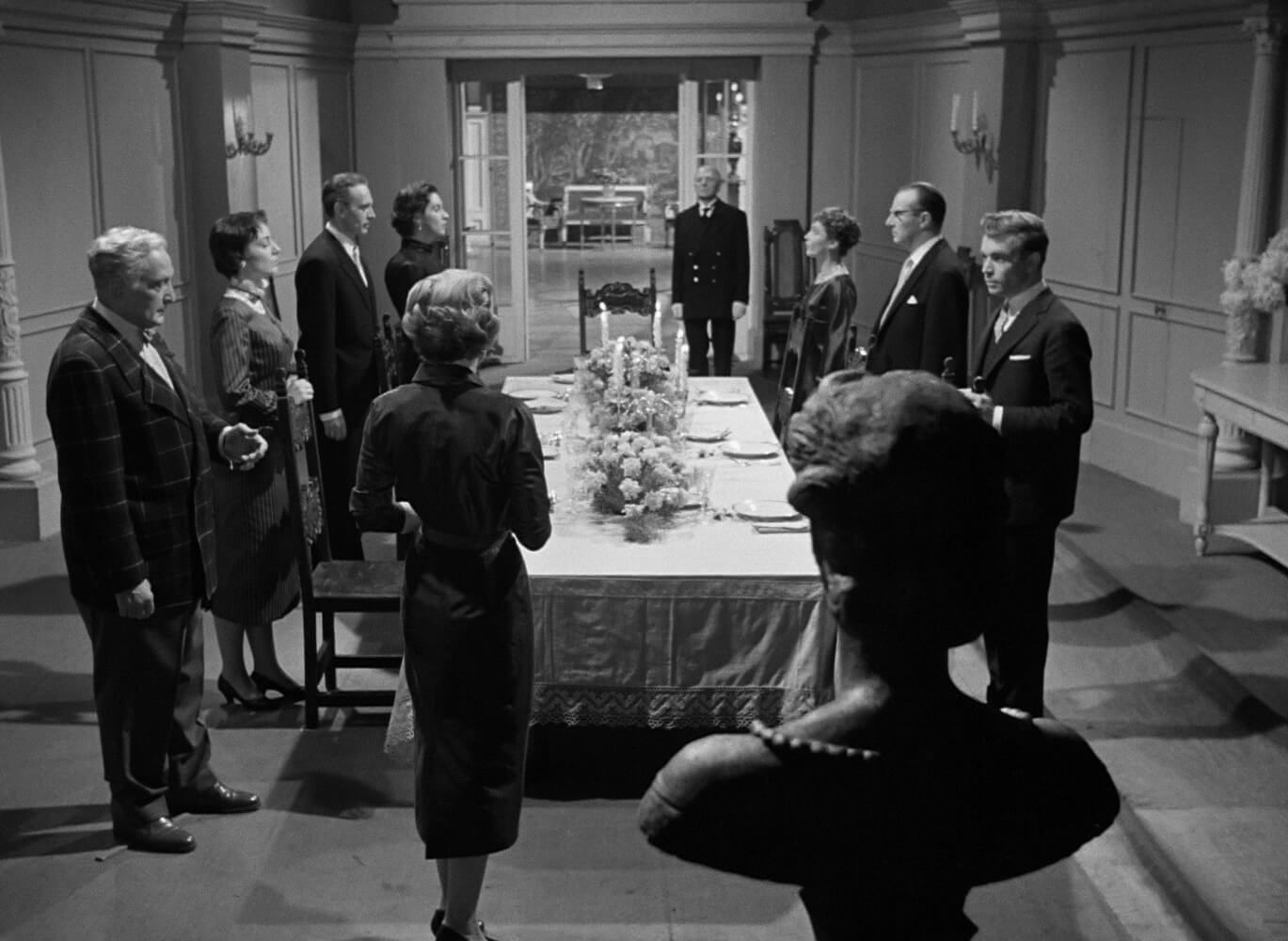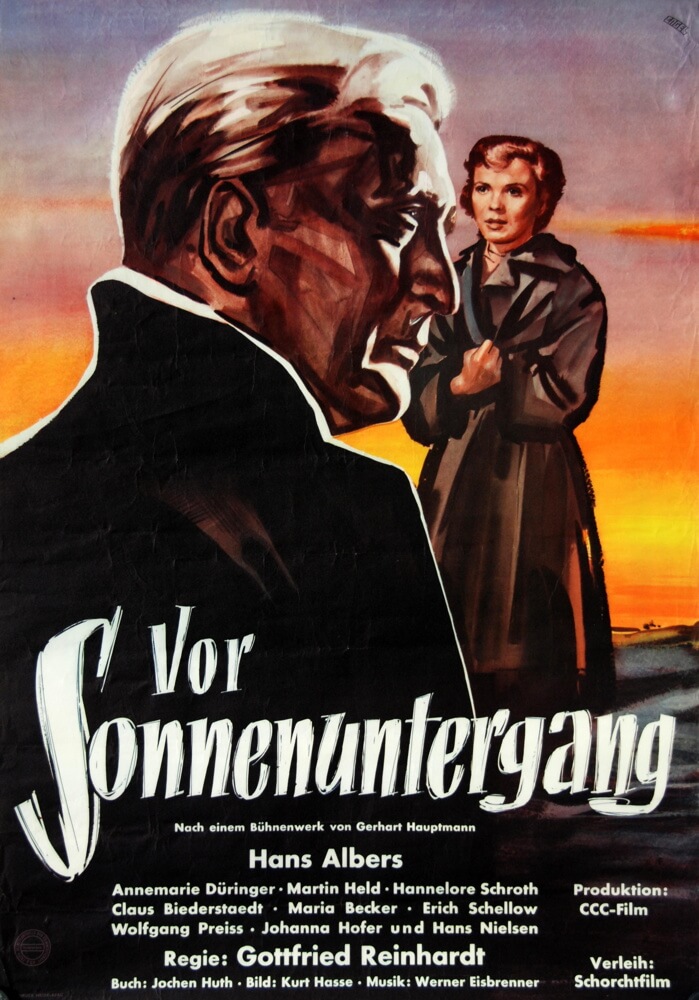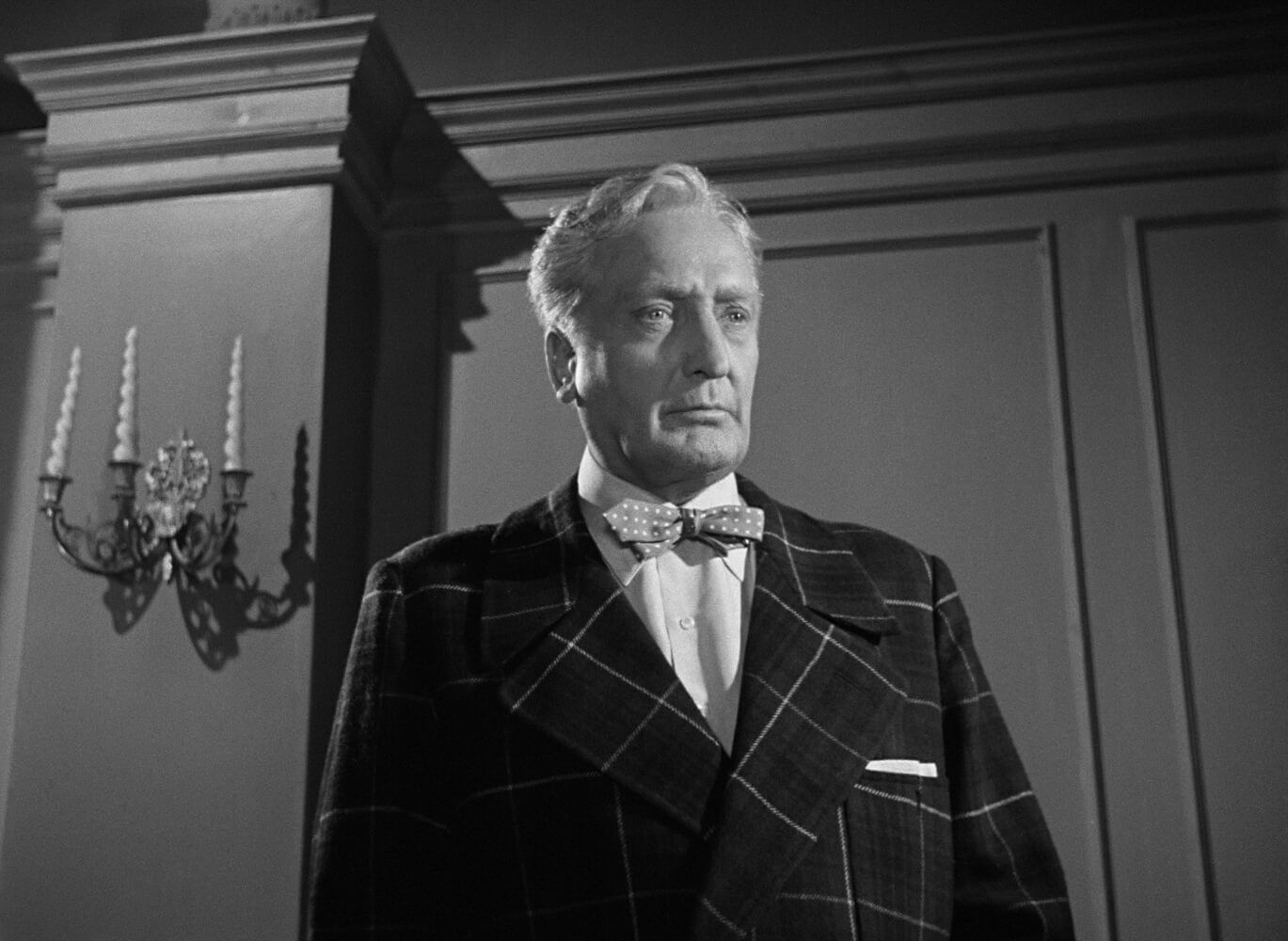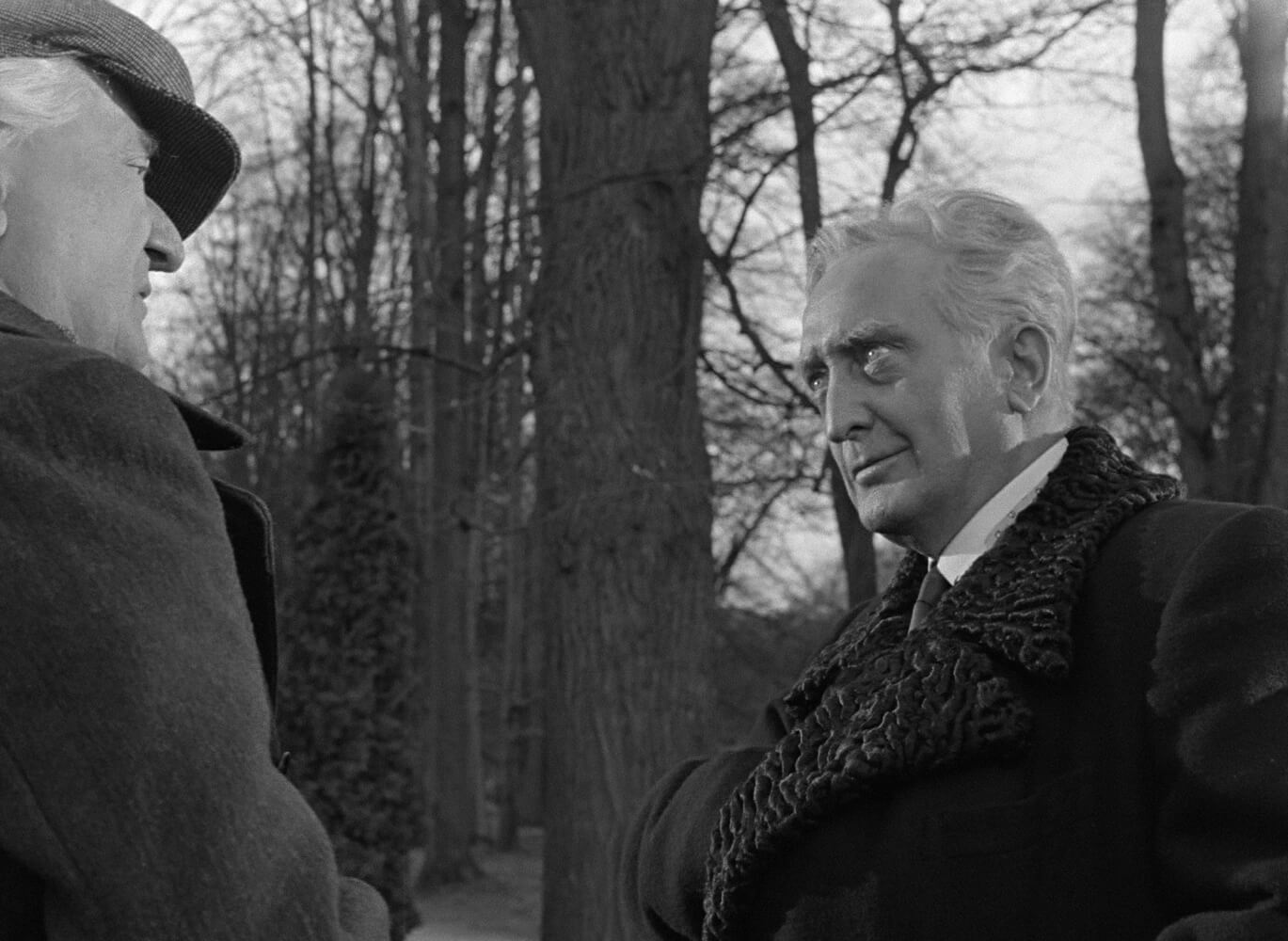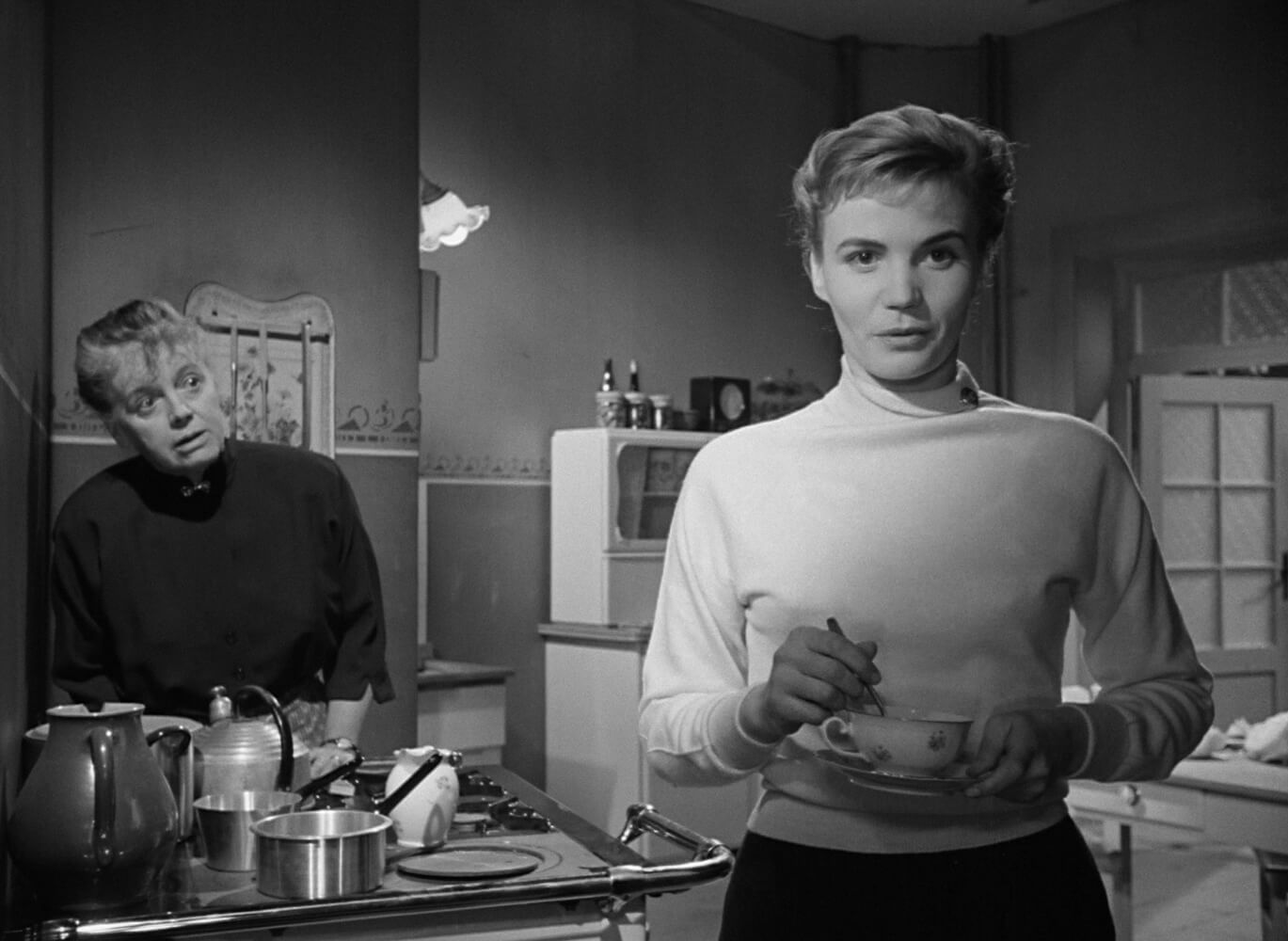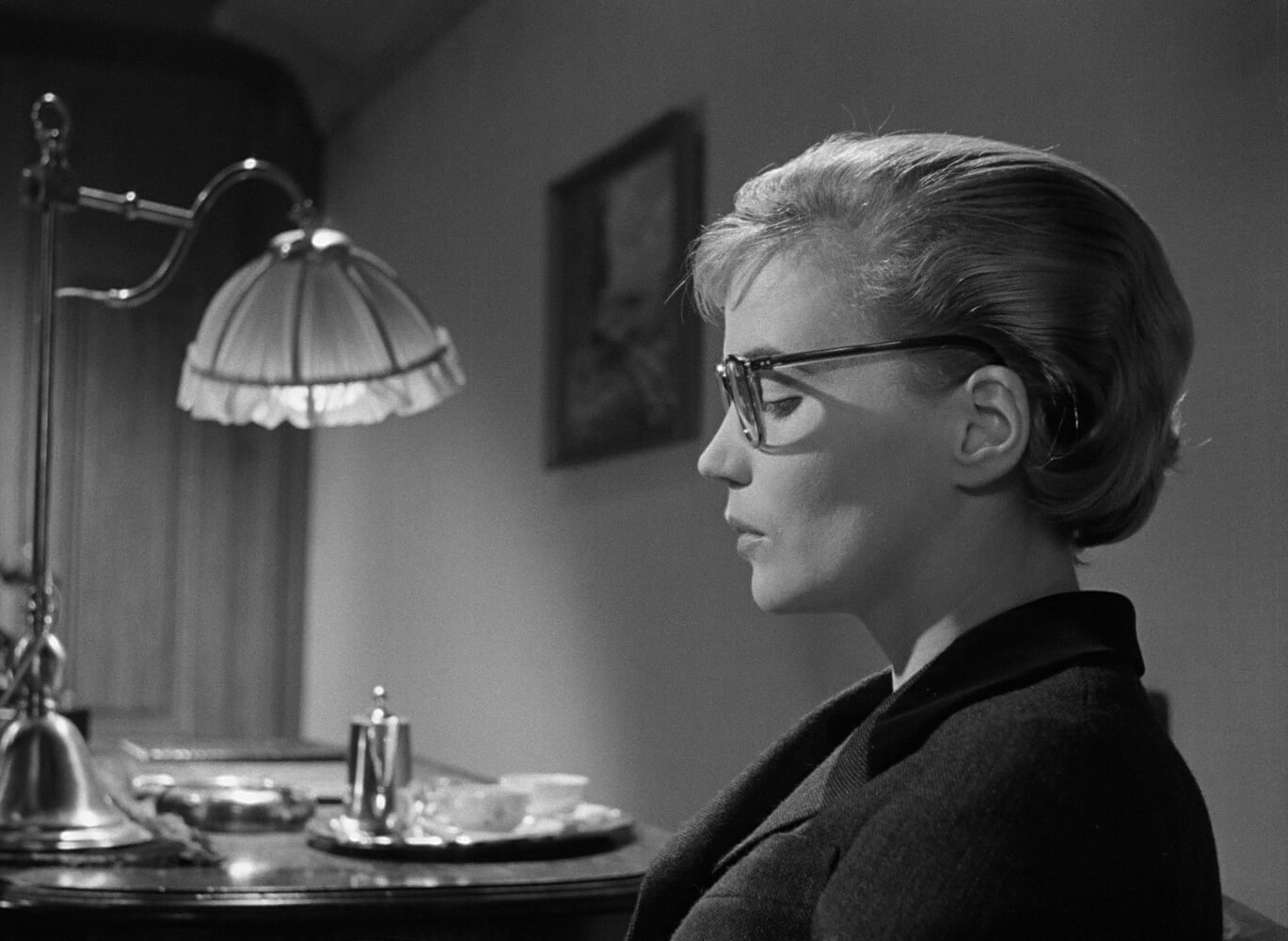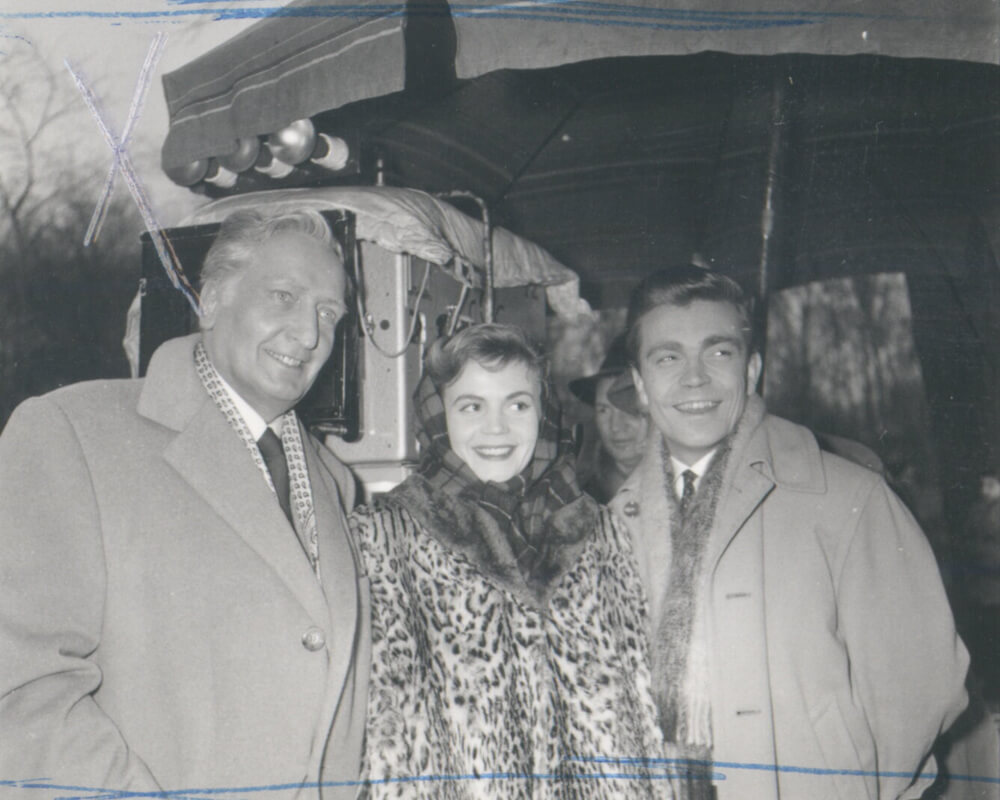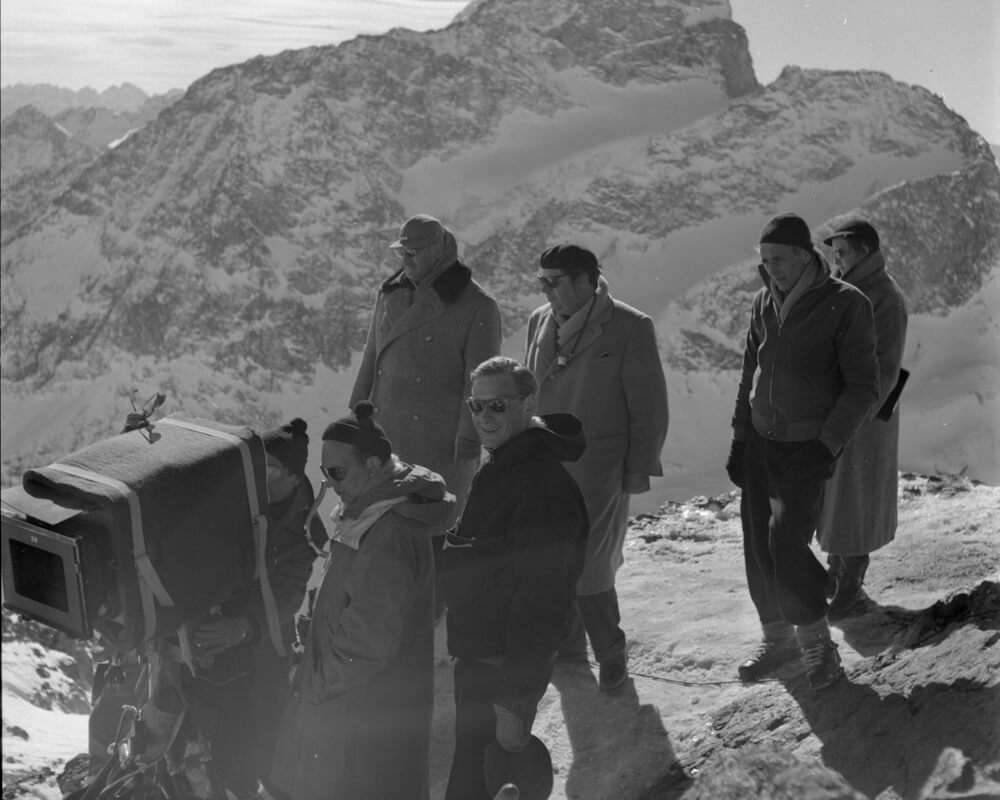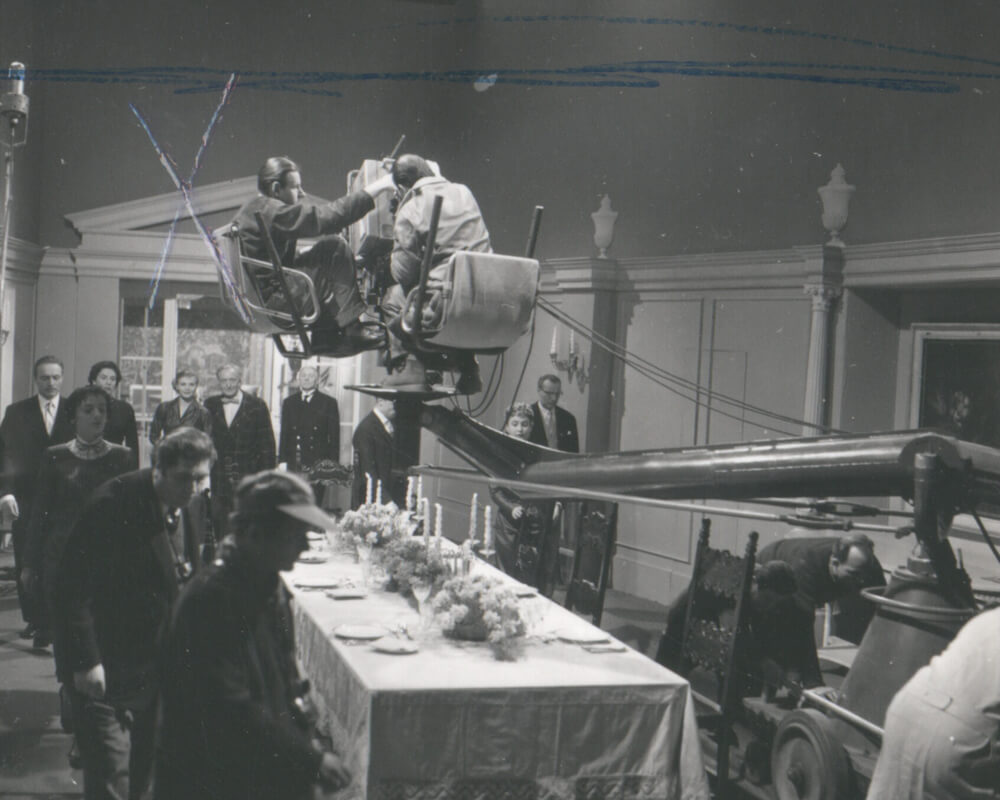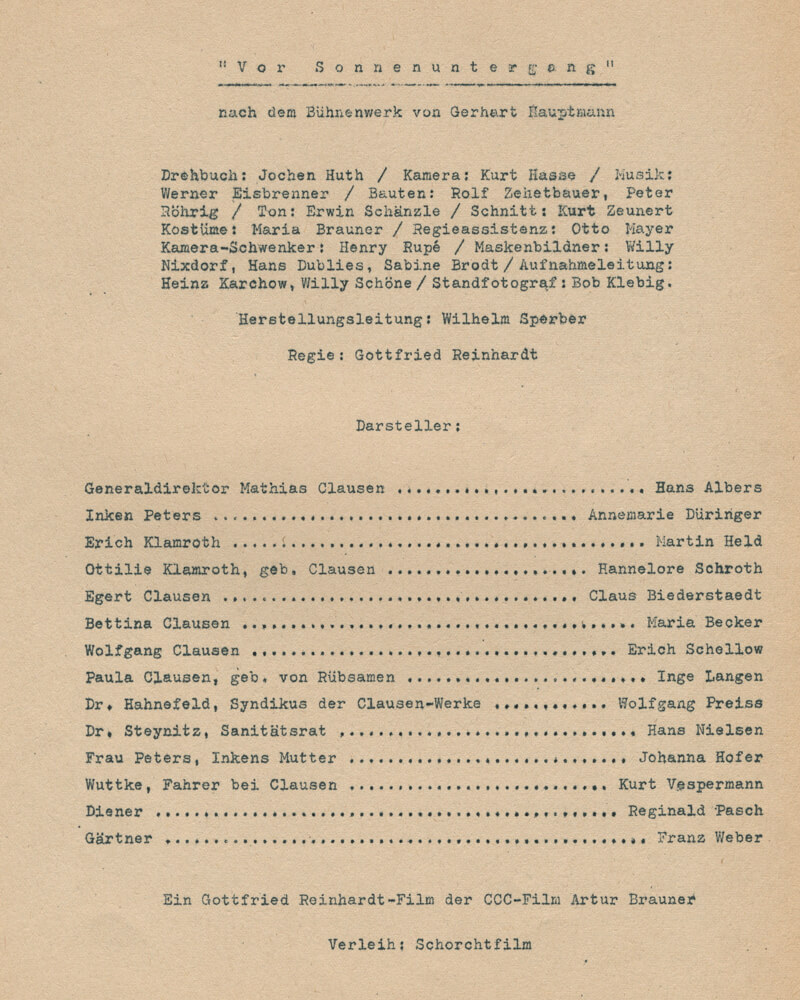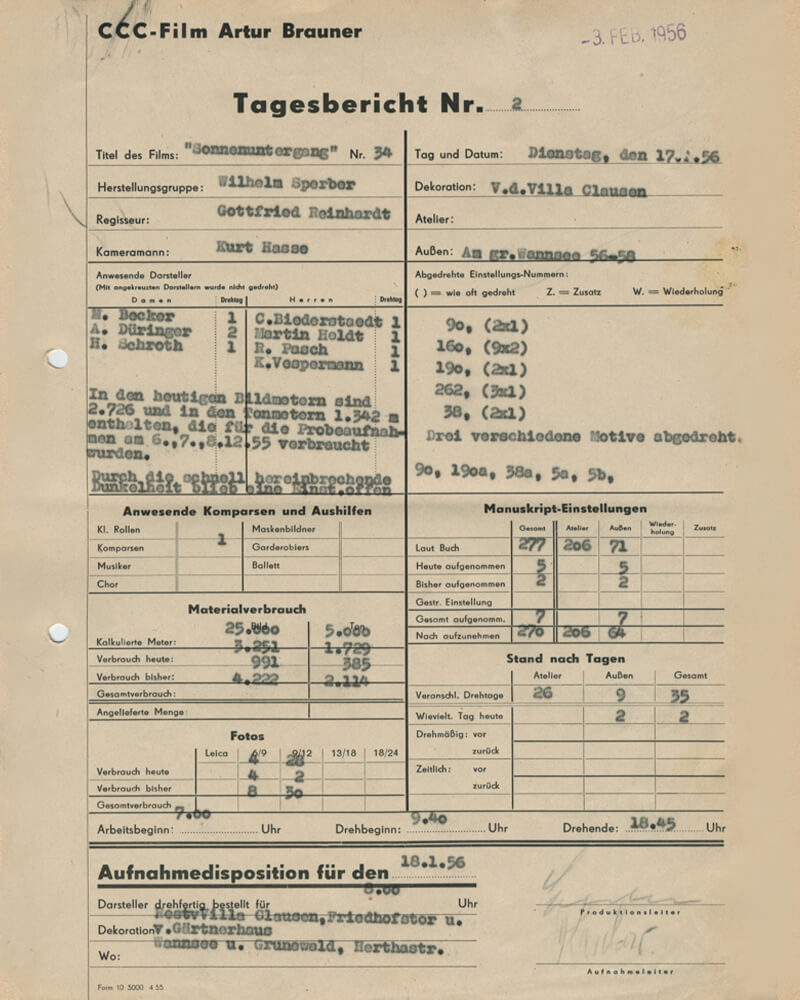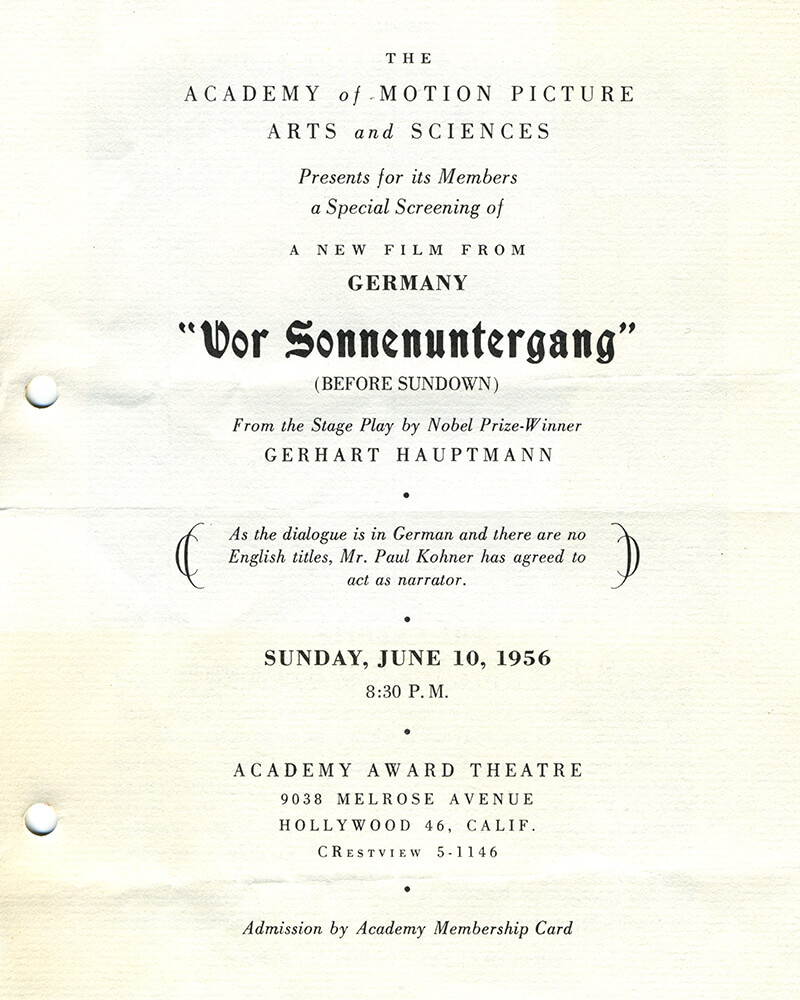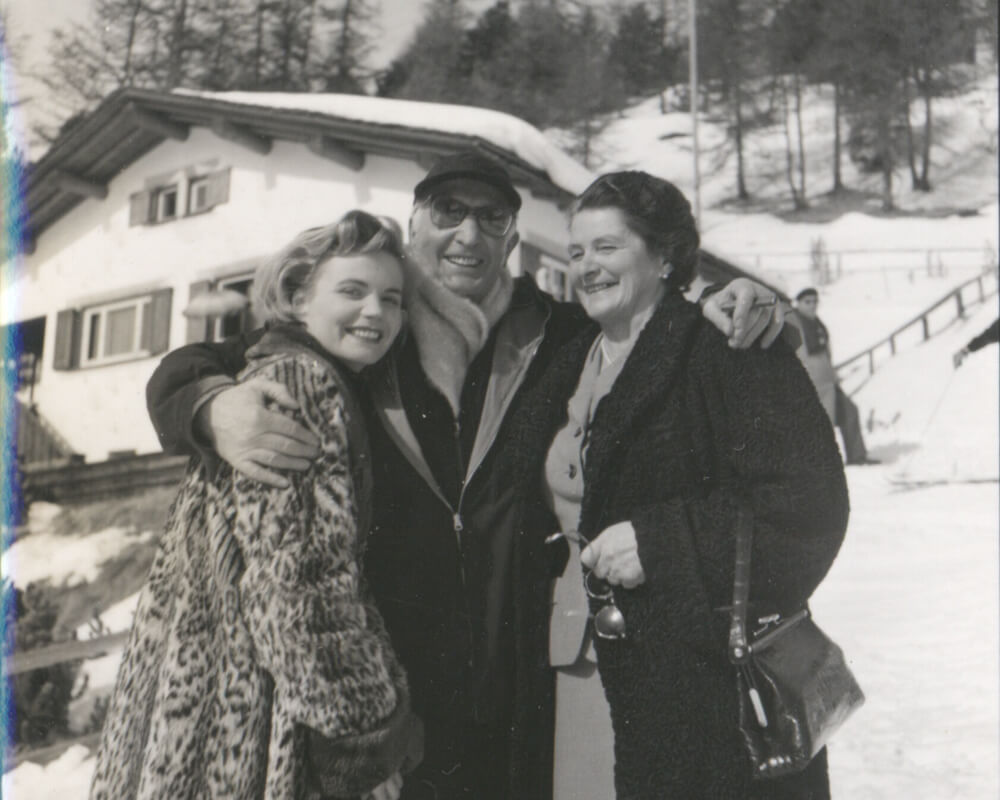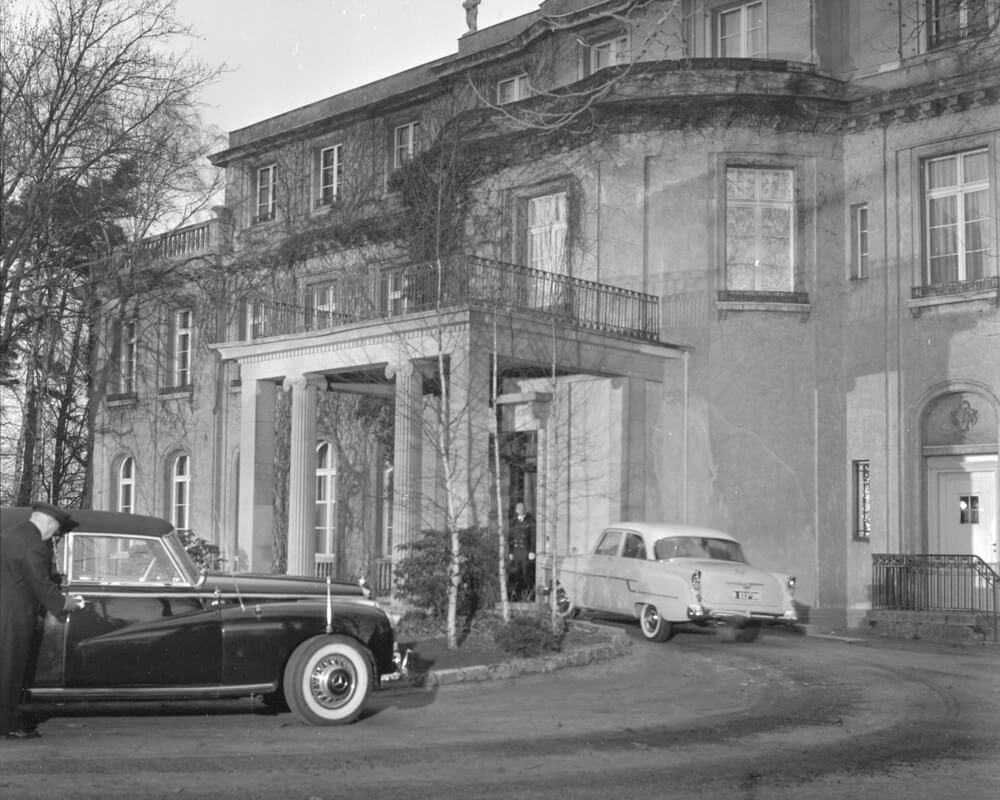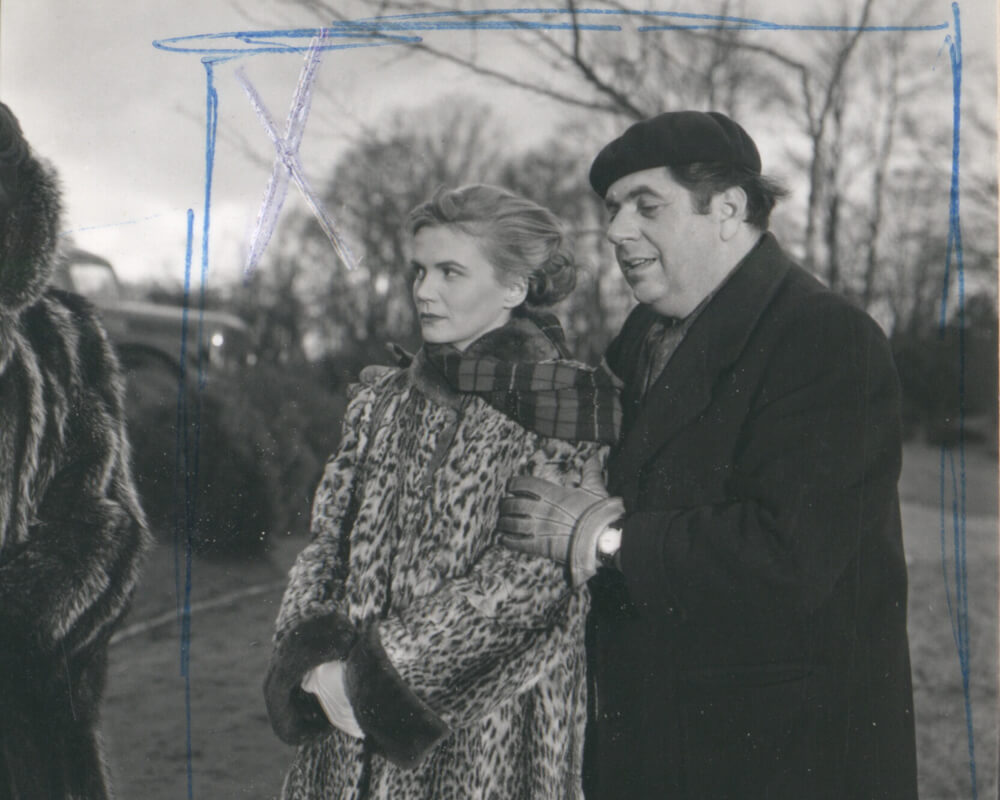Title: Before Sunset
Original title: Vor Sonnenuntergang
Director: Gottfried Reinhardt
Book: Gerhart Hauptmann (play)
Screenplay: Jochen Huth
Actors: Hans Albers, Annemarie Düringer, Martin Held, Hannelore Schroth, Claus Biederstaedt, Maria Becker, Erich Schellow, Inge Langen, Wolfgang Preiss, Hans Nielsen, Johanna Hofer, Kurt Vespermann, Reinhold Pasch, Franz Weber
Producer: Artur Brauner
Executive producer: Wilhelm Sperber
Camera: Kurt Hasse
Technique: Arthur Grimm, Bob Klebig, Henry Rupé
Sound: Erwin Schänzle
Editing: Olivier Mauffroy
Make–up: Sabine Brodt, Hans Dublies, Willi Nixdorf
Costumes: Maria Brauner
Music: Werner Eisbrenner
Production Company: Central Cinema Company Film (CCC)
Production year: 1956
Locations: CCC studio (Berlin-Spandau, Germany), St. Moritz (Canton Grisons, Switzerland), Vienna (Austria)
Genre: Drama
Country: Germany
Language: German
Length: 103 min
FSK: 12
Aspect ratio: 1.33 : 1
Color: black and white
Sound: mono
Resolution: Full-HD
Other titles:
English: Before Sundown
Finnish: Ennen auringonlaskua
Norwegian: Før solnedgang
Hungarian: Naplemente előtt
Russian: Перед заходом солнца
Serbian: Pred zalazak sunca
Awards:
1956 Berlinale: Audience Award “Golden Bear” -> Gottfried Reinhardt; also nominations for Claus Biederstaedt, Hans Albers and Annemarie Düringer each as Best Actor:in for the Silver Bear.
1957 Golden Globe: Best Non-English Film -> Before Sunset
Filmlabel: B-Spree Classics
Theatrical start: July 06, 1956
VHS release: November 12, 1988
Mediabook release: November 11, 2022


